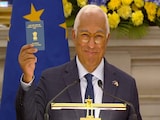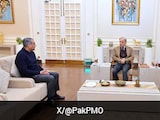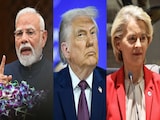In our childhood, we were taught that democracy (Loktantra) means "of the people, by the people, for the people". We proudly proclaim India as the world's largest democracy. After years of struggle against British rule and countless sacrifices by freedom fighters, we achieved independence. Our forefathers chose democracy as the path forward, aiming to rebuild a nation that could become a beacon of hope for the world. This vision was made possible by our visionary leaders and architects of the Constitution, who were dedicated to creating institutions capable of keeping the country united even in the most challenging times.
Indian democracy stands as one of the greatest achievements of the 20th century. For the past 75 years, we have upheld and defended democratic ideals with resilience. Our institutions have acted as fundamental supports for maintaining our democratic framework. Yet, the present situation in Delhi represents a serious threat to the core of Indian democracy. The chaos, mismanagement, and upheaval in Delhi's governance - resulting from the central government's intervention via the Lieutenant Governor (L-G) - endanger all that we have accomplished, putting the very spirit of Indian democracy at risk.
Questions Of A Delhi Voter
The value of every vote in Goa with 1.2 million voters is higher than that of Delhi with 20 million voters. As a Delhi voter, I feel it is my responsibility to highlight the plight of the voters of the national capital, whose votes seem devalued by the intentional degradation and attempted killing of democracy. The chaos and mismanagement caused by the Central government through the Lieutenant Governor (L-G) are severely affecting the people - the true masters in a democracy - and undermining the concept of the triple chain of accountability.
Democracy is both a form of government and a way of life that upholds liberty and equality. It is rooted in philosophical principles, and in the case of Delhi, it is essential to think beyond traditional definitions of democracy. Consider the fundamental rights and far-reaching consequences of denying equal political rights. The original Greek word 'demokratia' means the people (demos) rule (kratos). But in Delhi, who are the people, and how do they rule? What happens when democracy becomes a struggle between the people and the system - "Lok" versus "Tantra"?
In 2012, the Aam Aadmi Party (AAP) emerged from the 2011 anti-corruption movement. Led by Arvind Kejriwal, a Magsaysay Awardee, an IITian and a former bureaucrat, the AAP formed a government with outside support from Congress in 2013 after winning 28 seats in its first election. The political landscape changed when Kejriwal challenged the upcoming Prime Minister in Varanasi in 2014 and later won the 2015 Delhi Assembly Elections with a record number of seats. This is when PM Modi and the Bharatiya Janata Party (BJP), struggling to gain a foothold in Delhi, began to thwart Kejriwal by any means necessary.
Fighting For Control
Despite hurdles created by the central government through the L-G, the AAP's governance, especially in education, healthcare, transportation, and electricity, has been widely praised. The people of Delhi re-elected AAP with a thumping majority in 2020 and again in the recent Municipal Corporation of Delhi Elections. However, the situation deteriorated significantly after the Centre passed the Delhi Services Act 2023, stripping the elected government of control over the bureaucracy and overturning a Supreme Court Constitutional Bench verdict. The Constitution bench had emphasised federalism, stating, "If a democratically elected government is not provided with the power to control the officers posted within its domain, then the principle underlying the triple-chain of collective responsibility would become redundant. That is to say, if the government is not able to control and hold to account the officers posted in its service, then its responsibility towards the legislature as well as the public is diluted."
No government can function without control over its officers. Since then, the BJP and the L-G have weaponised the bureaucracy to bring the administration to a standstill. The Delhi government has challenged the Act, and it was referred to a Constitutional Bench in July 2023. A year later, the Supreme Court has yet to notify the Bench, adversely affecting Delhi residents as if punishing them for electing a party of their choice.
Administration In Suspension
The Delhi Services Act 2023 has thrown governance into chaos. Routine administrative tasks have stalled, including payments for Mohalla Clinics, the Farishtey Scheme, doorstep delivery of services, the removal of bus marshals, abrupt halts in old-age pensions, and the withholding of proposals like sending teachers to Finland for training. Hundreds of such hurdles created by the Central government disrupt Delhi's administration. Even the desilting of roads is not being carried out despite instructions from ministers, no third-party audits are conducted, and disciplinary action is not taken against officials. This negligence recently caused the deaths of three UPSC aspirants in Rajinder Nagar.
The 2023 Constitution Bench judgment emphasised that people are the ultimate sovereign, and the executive is accountable to the public through the "triple chain of accountability". This means voters elect their representatives, who formulate policies, and civil servants implement them. Civil servants should answer to ministers, who, in turn, answer to the voters. But in Delhi, civil servants are not accountable to the ministers, meaning Delhi's electorate has no control over the policies implemented in their constituencies. This was precisely what the court addressed when it ruled that Delhi's civil servants must be accountable to the Delhi government they serve.
What Value Does A Vote Hold?
The question remains: What are Delhi voters being punished for? Do they deserve this? What value does their vote hold? What message are we sending from Delhi, the capital of the world's largest democracy, to the world?
With the hope that Indian democracy will emerge stronger from this dark phase and continue to be a beacon for the world, I conclude with the poignant lines of revolutionary poet Sahir Ludhianvi, dedicated to those in power undermining democracy in India:
Zulm phir zulm hai badhtā hai to mit jaata hai
Khoon phir khoon hai tapkegā to jam jaega
(Anurag Mishra is a governance Specialist and an AAP supporter)
Disclaimer: These are the personal opinions of the author















